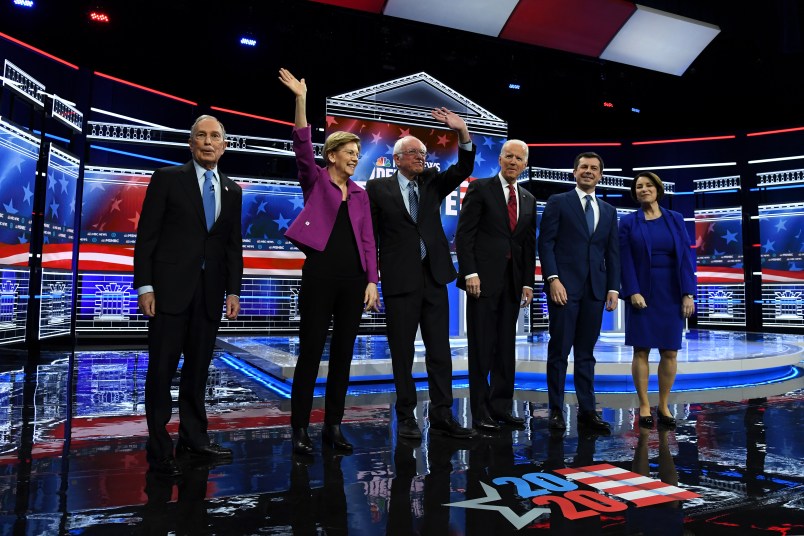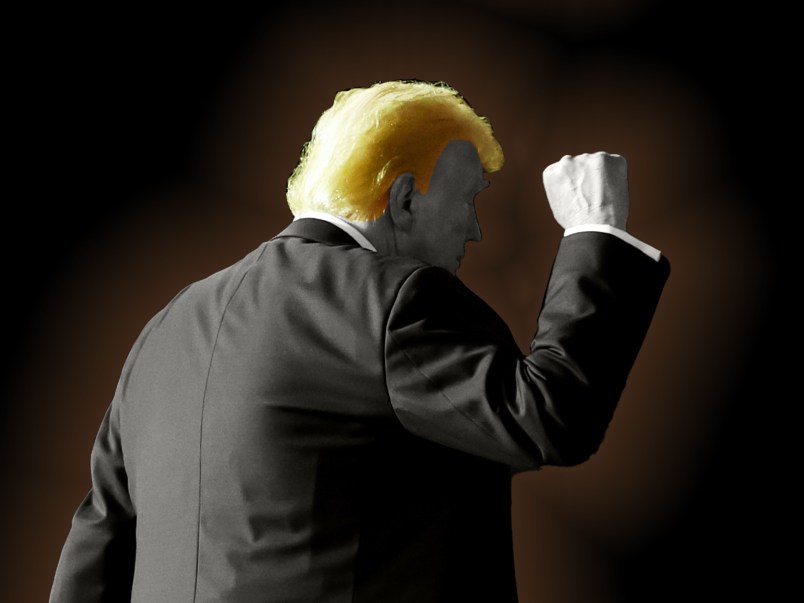This article is part of TPM Cafe, TPM’s home for opinion and news analysis.
The Democratic Party doesn’t have a great record of addressing race. Dialogue on the topic, including in recent presidential debates, has not emerged as a genuine focus. That’s unfortunate for everyone, especially as millions of Democratic voters will be selecting their nominee in the next days and weeks.
“Race” and “people of color” have effectively been used as synonyms for “black people” and occasionally also for “brown people” or Latin Americans. These have generally been the only non-white groups who have received attention, albeit scant attention. “Race” has similarly been used as a synonym for distressing issues, issues related to incarceration, to immigration, to poverty and to violence.
When race is conceived in such narrow ways, millions of Native Americans and millions of people in the United States with ancestral roots in countries such as China, India, Japan, Philippines and Vietnam, who are decidedly not racialized as white, black or brown but who do face various types of systemic racism, are completely ignored.
Such limited definitions as to what “counts” as race further divides white people and people of color and further stigmatizes non-white individuals.
To begin talking about race in genuine ways, Democratic politicians must talk about whiteness and white privilege (that is, when white people benefit from racism, often unknown to white individuals). Presidential candidates should use their national platforms to foster the white voter’s knowledge about the pervasiveness of racism.
Politicians must also express true concern for the microaggressions non-white people face: the everyday racism faced while at their schools, at their physician’s offices or at their neighborhood parks. They must show understanding of the unique struggles non-white people face when trying to start a business, to graduate from college or to file a lawsuit, and they must show that understanding often. They must highlight non-white artists and scientists, too.
While this might not be an easy winning political strategy, neglecting to do it is a guaranteed failing strategy.
Candidates, including Mayor Pete Buttigieg, have sometimes acknowledged such inattention, albeit in narrow ways. In the Jan. 14 debate he said, “Now, the biggest mistake we could make is to take black votes for granted, and I never will.” And in the Feb. 7 debate, Vice President Joe Biden repeated, “We’ve got to stop taking the black community for granted.” As demonstrated again during Wednesday’s debate, politicians have then repeatedly gone forward without making any significant change in their rhetoric or in their behavior, all the while assuming their concessions have secured the non-white vote.
Another issue throughout this election season comes to mind: Buttigieg has increasingly become the stand-in or the go-to person for specific questions concerning the mistreatment of black individuals, primarily because his mayoral record on race issues is not spotless. During the Feb. 7 debate, moderators asked him to once again explain why South Bend, Indiana, had a disproportionate number of black arrests under his leadership. But repeatedly pinning issues of race common to the party — and to the nation — specifically on Buttigieg ultimately perpetuates mere racist and homophobic tropes that claim “blacks and gays can’t get along.” This narrative has lingered despite studies that suggest black individuals are among the least queerphobic.
The situation changed somewhat on Wednesday night when Mayor Mike Bloomberg made his debut debate appearance. Moderators and fellow candidates asked him questions about his stop-and-frisk program that disproportionately targeted black and brown individuals. But this dialogue was not really about human rights violations and was not specifically pinned on discussing race, it was centered on pointing out his abuses of power.
It shouldn’t just be the mayors. All of the candidates should be held accountable and all need to be asked meaningful questions regarding the individuals of color they have (or have not) represented or have supervised. All need to show they can have informed discussions about race and about those they hope to represent.
As for me, I will cast my vote for whoever becomes the Democratic Party’s nominee because I believe she or he will work toward protecting human rights. As many others have said, any one of the possible Democratic candidates is far preferable to the alternative — with some important exceptions for the billionaire candidates. And while the differences between their platforms are already small, the differences between the actual results any one of them would achieve in office are likely much smaller. Given the urgency often felt by minority individuals like myself to have politicians in office who will find ways to foster a more equitable society, I am often warned against making public the kinds of thoughts voiced here. However, even in dire situations, we must not be afraid of criticizing the individuals and institutions we depend on.
Andrew Joseph Pegoda, Ph.D. (@AJP_PhD) is a professor at the University of Houston in the Women’s, Gender and Sexuality Studies; Religious Studies; and First-year Writing programs and has also written for Time, The Washington Post, The Conversation and History News Network.










Errare humanum est.
Except when you compare it to all the other parties.
I’m a 65 year old white guy, so take this with the appropriate grain of salt. But ISTM that Sen. Warren has been addressing racial issues in a more comprehensive way than any of the other remaining Presidential candidates. Pegoda didn’t mention her, which seems like a notable omission.
Also not mentioned: Sanders, who appears to be leading the field and thus deserves some scrutiny.
More from Pegoda:
This is true enough, and important, but to really “begin talking about race in genuine ways,” one should teach people that “race” is not an actual well-defined biological thing: it is a social construct, and an extremely pernicious one at that. The sooner we get rid of it the better – although at the rate we’re going, climate change will probably kill us all first.
Pure bunk.